Of Names And Such
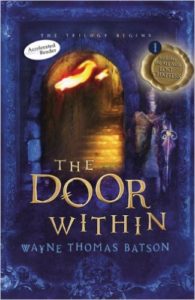 From time to time writers discuss their mode of coming up with names for their characters, and perhaps for places. Science fiction and fantasy writers, of course, have an entire world to name. How is it done?
From time to time writers discuss their mode of coming up with names for their characters, and perhaps for places. Science fiction and fantasy writers, of course, have an entire world to name. How is it done?
I suppose I’m thinking about this because I see similarities, unexpected commonalities, in novels with little else alike. For instance, in Wayne Thomas Batson’s first book,The Door Within this week. One key place in the novel is Mithegard, much too similar to my own city of Mithlimar in The Lore Of Efrathah for me not to notice.
How does this happen?
Another example: Bryan Davis in his Dragon’s In Our Midst series has a character named Palin, Donita K. Paul in The DragonKeeper Chronicles has one named Paladin, and I have one named Paloh.
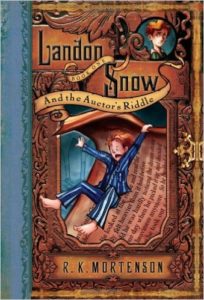 I know some writers like to play with words. If I remember correctly, I thought I detected word reversal in Karen Hancock’s Arena. I believe Randy Mortenson, author of the Landon Snow middle grade novels, borrowed from the Greek (or was it Latin? Hebrew? Aramaic? One of those!).
I know some writers like to play with words. If I remember correctly, I thought I detected word reversal in Karen Hancock’s Arena. I believe Randy Mortenson, author of the Landon Snow middle grade novels, borrowed from the Greek (or was it Latin? Hebrew? Aramaic? One of those!).
Stephen Lawhead in the Albion Trilogy and Lloyd Alexander in the Chronicles of Prydain seem predisposed to names that sound as if they came from a Scandinavian source.
I have to admit, I have no particular pattern. Sometimes I take existent words or names and tweak them a bit. For example, in a recent short story, I named a country—one with an elevation that enabled them to see beyond the clouds—Tonum (which is simply mount backwards). Sometimes I tweak words beyond recognition (and more often then not, I end up forgetting why or how I got to that particular name). I’ve taken some names from the Bible, then altered them. I’ve also taken words, translated them to Spanish, and then played with them.
The overriding concern for me, I think, is how the word sounds. It needs to evoke in me something of what I intend for that person or that place.
My process of choosing names is certainly not science, because I have no rhyme for my choice, though I usually have a reason.
I’m also not one to belabor names for any length of time. I know some writers pour over name books or develop entire languages.
So this is what I’m curious about: As a reader, how much do you pay attention to the names of characters or places? How much do you think about the significance of the name itself? And for writers, do you put particular significance into the names? Do you have any particular pattern (you can tell us what the pattern is, or not)? Inquiring minds love to know what others think, how other writers work.
This post first appeared in SpecFaith’s first iteration in December 2006.

































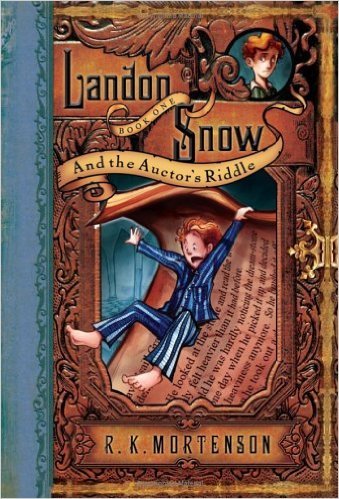


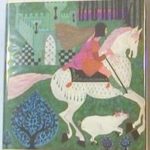
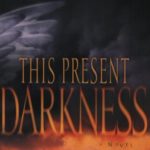





Names are significant because a reader connects with them. As a fantasy reader, I’m all for names that don’t sound like contemporary fiction but I do like play on contemporary names spelled unusually. Maulin can be Marlin, or Marlon. Bethani can be Bethany, stuff like that. Just enough to make the character a little be removed from my reality.
I pay a lot of attention to names when I read and when I write because of my interest in linguistics and conlanging. When I read spec fic, I want to be immersed in another place, another culture, another language – I want to see names with a new and distinct style. The less they look like they’re from well-known Earth languages (French, Welsh, Chinese, &c), the happier I am! But I also want to see the names fit with each other and have regular rules and patterns, just as human language does. Basically, I like it when it seems like the author creatively developed a regular sound system, naming style, &c and then made up names that fit within that system. Orderly exoticity is what I look for in spec fic, both names and in everything else. I love controlled newness, understandable strangeness.
In my writing, I usually construct languages to use for names. If I haven’t already created one for the society I’m writing about, I’ll just make a simple language with a basic sound system and some notes on word derivation and naming patterns.
When it comes to actually naming a character, I would definitely think about what sounds or letters might fit them, but I don’t generally give the name a really significant meaning. (Unless I’m writing an allegory or something like that.) I have pretty strong ideasthesia, which means particular letters and sounds have personalities, genders, colors, &c in my mind. So for instance, I tend to give names starting with the letter S to young clever characters with dark hair, especially if they’re female. A character with a name starting with T is probably male, and a character with an M name is probably elderly. It doesn’t bother me when other people’s names don’t follow my odd conventions, though – indeed, it can be rather fun to stretch my mind to accommodate, say, an old blond man with an S name. It makes the character feel more round, almost.
“Mythegard” makes me think immediately of “Midgard.” I believe that was done intentionally, but I could be wrong.
I can’t recall if this is true of Lloyd Alexander, but Lawhead’s Albion names don’t sound as if they came from a Scandinavian source. They’re taken directly from Celtic mythology and legend.
J.R.R. Tolkien borrowed many names from Scandinavian sources, however. Most of the dwarf names, as well as Gandalf, came from The Elder Edda.
John White’s Archives of Anthropos use Greek & Hebrew words, which adds an extra dimension to the allegorical parts of the stories.
With the profusion of fantasy literature in recent decades, it’s definitely hard to not overlap with someone else. I agree with sheesania’s post here about regular rules and patterns. That helps a lot in believing that a writer spent some work on their world-building, rather than choosing names from an online D&D Fantasy Name Generator.
Lloyd Alexander’s Prydain was supposed to come from Welsh, as seen by constructs such as Eilonwy, Fflewdder Fflam, and Llyr. The double-L sound doesn’t exist in English, w is pronounced “oo,”and so on.
I thought so. It’s just been so long since I read them that I couldn’t recall off-hand.
Yes, chiming in to say that Lloyd Alexander’s names are from Welsh. I took Welsh in high school and was amused to realize that the horse’s name, Melynlas, directly translates to “yellow-blue.” 😀
What magical-unicorn high school has Welsh for a language elective???? I thought it was exotic in my college that we could choose Japanese.
Homeschool for the win!! 😀 I did the Rosetta Stone program at home. 😀 Unfortunately, their Welsh program had not been updated in a long time and had glitches and I wasn’t able to complete the full course. Sadness.
Sorry, I didn’t mean to cause a firestorm here. I was thinking of the early origins, but didn’t really do my research. Where did Celts and Welsh come from? Seems like they may have roots in Scandinavia:
Becky
Ahh, so you were correct, really! I didn’t know the origins of Welsh. 🙂 I didn’t think it was a firestorm…just a fun discussion. 🙂
As a reader, I am interested to see if the names in the story ring ‘true’ to the author’s own name. I don’t need a writer to preach at me, nor do I want them to just toss me a superficial bone. A story that rings ‘true’ to the author’s own name will take me to places spiritually I’d probably rather not go.
As a researcher into the meaning of names, I love fantasy stories. They provide the biggest insights as to what the author thinks about their own names (providing, that is, they are writing ‘true’ and the main agenda is not preaching). When I write and teach on name covenants in the non-fantasy, real world, I use those insights – and find that people repeatedly connect to them in ways specific to their own name.
As a writer, I simply make names up. Sometimes I’ll pore over a name dictionary for months until I get the right name, but mostly I go with an inner prompting that a name feels right. Only after I’ve finished the story do I research the name – to discover what God is telling me through my own story. Once you discover how to decipher name covenants, you’ll never view any fiction the same way again.
I’m intrigued by the way the mere sound of a name can suggest certain connotations. For example, even if you know nothing about “Gormenghast,” you can probably suspect that it isn’t a very nice place, can’t you?
Interesting post and comments! sheesania gets the most points for a well-thought out system of naming! I certainly don’t get that involved in naming characters, however, I do think names are important. For my historical fantasy fiction novels, I had to give the characters names that fit the era the books are set in, namely 7th century Britain. So I went back to find names that are authentic from that time period. It can be a bit of a problem, because sometimes those names can be so exotic to the modern reader that they become a hindrance. So I tried for “authentic, but simple”. But I also see names as a bit of an “easter egg” as well. The names of my characters are authentic to the era, but they also have meanings. So I choose names also for what they mean. And of course, with my main character, who is from our time, I could name him anything I wanted, but there is definitely a reason why I called him Thomas. I like adding little layers of meaning into my work that way, even if it’s only me that gets it.
Thomas is my character’s middle name, and I suspect for the same reason you named yours. But I don’t think I use his middle name anywhere in the series. I used to, in an earlier draft, but I took it out and don’t know that I ever found a good way to slip it in unobtrusively. But yes, name meanings can give depth to a story because of their symbolism or meaning.
Becky
In reading, I love a well-named person or place. Although I like completely invented names, I’m also tickled by something with a sly meaning to it – like Diagon Alley (diagonally?) and Theamid (a name a friend and I once coined out of the words “the amid,” for a central capital city).
Most of the time a character’s name comes to me right along with the character. If a name doesn’t immediately suggest itself to me, or if the name a character originally had doesn’t fit, I DO look for something that will have meaning to it. Often a character’s middle names have meanings too, because I don’t tend to think of middle names off the top of my head and have to browse baby name site for them.
For last names I sometimes take two common “elements” of last names and mash them together to create something unique but familiar-sounding. Like in my current WIP, there are characters with the last names Leansmith, Ferchcliff, Dianucci, and Derrikson. I’ll also use real actual last names, like MacKenzie and Allen, since these are human characters from modern-day Earth.
For made-up languages, to invent a word I focus on the thing I’m trying to name, in its essence, and mentally fish for what sort of sounds or feelings that thing brings to mind. Or what sounds one might make when calling on that thing. And for names in an invented language I just go for what appeals to me aesthetically. Thraunya, Eska, Thetreth, Nemerriss, Ynathe, Lenet, Uryaldis, Tethica Lonad…lots of delicate “th” sounds, smooth consonants, and vowels appeal to me, so they appear in my language. Usually I think of the name first and then assign a meaning to it later, and work the root words of that name’s meaning into the language to add more words to my dictionary.
I love names! As a reader, I usually only pay attention to a name when its pronunciation is not immediately obvious. You mentioned Lloyd Alexander in your post, and he is, in my opinion, one of the worst offenders. Who knows how to pronounce Eilonwy? (That said, he is still in my Top 5 favorite authors!)
I also pay attention to a name when I feel it is particularly lyrical, memorable, or meaningful. I keep forgetting that A Wrinkle in Time’s FMC is Meg, but who would ever forget Frodo? It’s short, simple, yet different enough that when you say the name, people recall the book and the context immediately. (A smart play from a marketing strategy standpoint!)
I go for that memorable or meaningful quality when I write. Sometimes I take a name from the Bible or history as a sort of hint at the character’s role.
For an example of a meaningful name: A character named Moses lived in an undersea prison and was literally “drawn from the water” when he later escaped. The book focused around a mysterious character known as Aquarius, all part of the water-theme.
For an example of a memorable name, I’ve created Katryl, Edric, Tascu, Enrin, Laska… Few of my names today are over 2 syllables long, but they are all different enough to remain specific to my stories. I find that people remember those better, which helps them remember my books too!
Yay, pedantic nerd moment!
Based on my spacey knowledge of Welsh, Eilonwy should be pronounced “Ay-lon-oo-uh.” In Welsh, W’s are usually “oo” and Y’s are a schwa (unstressed vowel). And “Ei” is “ay” like in Japanese and not “aye” like in German.
Up with the nerds! Ahem… I did look at the pronunciation guide in the book, but now that I have been properly introduced to Welsh (spacey or not) it makes sense. Does this mean that Gwydion is not GWIH-dee-uhn but GWUH-dee-uhn? I like the “ih” sound. 🙁
Yeah, but that name already existed (technically the character already existed from Welsh legend; Alexander just cropped out his douchier aspects).
So interesting to see what others think about names. I agree that ones that seem unpronounceable to me are off putting. I’ve changed the spelling and even the names themselves of some of my characters/places as a result.
I originally had other world/language names for all my places, but upon reading other fantasy, I realized that just because these characters live in a made up world, they didn’t have to forego place names such as South Beach or West Coast Plaza. Or Hidden Cove. It was a revelation to me. Here was a way to keep people from thinking this foreign place was too foreign.
Becky